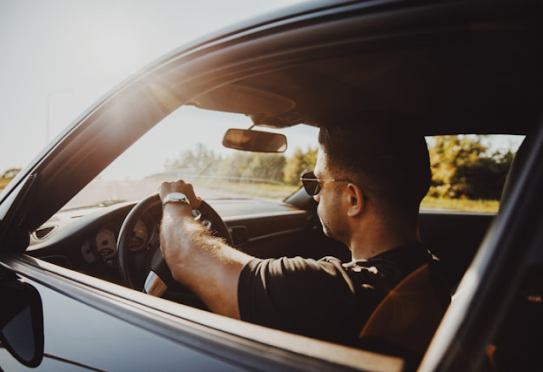It’s after midnight, and you’re pulled over on Highway 34, with headlights still on. The officer says you drifted across the line. Maybe you agreed to a breath test. Perhaps you didn’t. Now, you’re facing DUI charges, and the first question on your mind is the same one asked in countless traffic stops every year: What evidence is needed for a DUI conviction in Colorado?
If you’re weighing your options, looking for weaknesses in the case against you, or trying to avoid mistakes that can damage your future, this guide discusses the evidence prosecutors typically use and how the right defense can turn it against them.
Colorado DUI Law: What Must Be Proven?
Colorado defines driving under the influence (DUI) as operating a vehicle while “substantially incapable” of doing so safely due to alcohol, drugs, or both. A blood alcohol concentration (BAC) of 0.08% or higher creates a legal presumption of impairment. But here’s the part that trips people up—you can still be convicted without a chemical test or a BAC below the legal limit.
To secure a conviction, the prosecution must prove two core elements beyond a reasonable doubt:
- You were in actual physical control of a motor vehicle, and;
- You were impaired by alcohol, drugs, or a combination at the time.
Colorado’s express consent law adds another wrinkle. If law enforcement suspects you of DUI, you’ve legally agreed to submit to chemical testing just by driving in the state. A refusal doesn’t just hurt your license. It gives the prosecution another tool to imply your guilt.
What Kind of Proof Is Needed for a DUI Conviction?
People often assume a conviction isn’t possible without a failed breathalyzer or blood test. But that’s not the case. The prosecution can build a DUI case using several forms of evidence, and they don’t all require numbers on a printout.
If you’re wondering what kind of proof is needed for a DUI conviction, here’s what prosecutors typically rely on:
- Chemical test results. Blood, breath, or urine results showing BAC or the presence of controlled substances.
- Field sobriety test performance. Whether you followed instructions during roadside tests like the one-leg stand or walk-and-turn.
- Officer observations. Reports of slurred speech, poor coordination, the smell of alcohol or marijuana, or confusion.
- Driving behavior. Swerving, running red lights, or erratic braking all suggest impairment.
- Video footage. Bodycam or dashcam video showing your speech, balance, and demeanor during the stop.
- Test refusal. A refusal can be treated as a consciousness of guilt and has its consequences.
The state doesn’t need every category of evidence. A few consistent pieces may be enough unless your defense attorney can expose weaknesses, errors, or rights violations.
Can You Be Charged with DUI Without Evidence?
Arrests can be made based on an officer’s suspicion. But a conviction? That’s different. Prosecutors need more than just a hunch to convict. They need reliable proof of both operation and impairment. The case becomes harder to prove without a test result, strong field sobriety performance, and corroborating video or witness account.
That’s why DUI cases in Colorado often come down to:
- Whether the officer had legal grounds to make the stop,
- How the police conducted the investigation,
- If law enforcement followed procedures for testing and documentation, and
- Whether your rights were upheld throughout.
A skilled DUI defense attorney can often spotlight these issues and force the prosecution to rethink its case.
Key Evidence Used in Colorado DUI Cases
DUI evidence usually falls into five main categories. Each comes with its risks, rules, and opportunities for challenge. Here’s what prosecutors often bring to court:
- Chemical test results. Breath or blood tests must follow strict guidelines to be admissible.
- Field sobriety tests. Police use standardized tests, such as the walk-and-turn or HGN (eye movement test), to detect signs of impairment.
- Officer testimony. Police reports and live testimony often describe behavior like fumbling for your license or trouble standing straight.
- Driving behavior and 911 calls. Prosecutors may submit evidence of erratic driving or reports from other drivers to show impairment before the stop.
- Bodycam and dashcam footage. Visual recordings can support or undermine everything in the officer’s report.
These forms of evidence aren’t bulletproof. They can and should be challenged.
How DUI Defense Attorneys Discredit Evidence
You don’t need to prove you were sober. You need to raise doubt about whether the state can prove you were impaired. That’s where a good defense comes in. Our defense attorneys challenge DUI evidence in Colorado by:
- Showing the officer lacked probable cause for the stop, which can exclude all evidence that followed;
- Uncovering calibration issues, expired certifications, or handling errors with the breath or blood test;
- Arguing that medical problems, fatigue, or nervousness, not impairment, led to poor field sobriety results; and
- Revealing contradictions between testimony and video evidence.
Sometimes, the case falls apart. Other times, it weakens enough for prosecutors to reduce or dismiss charges altogether.
We Take a Closer Look at the Details
The Harrell Law Firm, PLLC, doesn’t treat DUI cases as routine. We examine the evidence piece by piece, identifying legal and procedural flaws others might miss.
Founding attorney Sean Harrell has handled hundreds of DUI and DWAI cases from both the prosecution and defense sides, providing him with unique insights. From our office in Loveland, we serve clients throughout Larimer, Weld, and Boulder counties, offering focused, strategic representation that challenges assumptions and defends your rights from day one.
Whether you submitted to testing, refused, or have a medical reason for an elevated BAC, we help you understand what you’re up against and what we can do about it.
Don’t Let the Evidence Derail Your Case
If you’re wondering what evidence is needed for a DUI conviction in Colorado, you’re already a step ahead. Now, it’s about using that awareness to protect your future.
Facts matter, but how you respond to those facts matters more. When your future is at stake, our effective defense can determine the difference between a conviction and a second chance.
Resources:
- Colorado General Assembly, Colorado Drunk Driving Laws Summary (October 2024), link.
- Penalties for traffic offenses involving alcohol and drugs – legislative declaration – definitions, C.R.S. § 42-4-1307 (2025), link.
- Traffic offenses and infractions classified – penalties – penalty and surcharge schedule, C.R.S. § 42-4-1701 (2025), link.
- Traffic infractions – proper court for hearing, burden of proof – appeal – collateral attack, C.R.S. § 42-4-1708 (2025), link.



